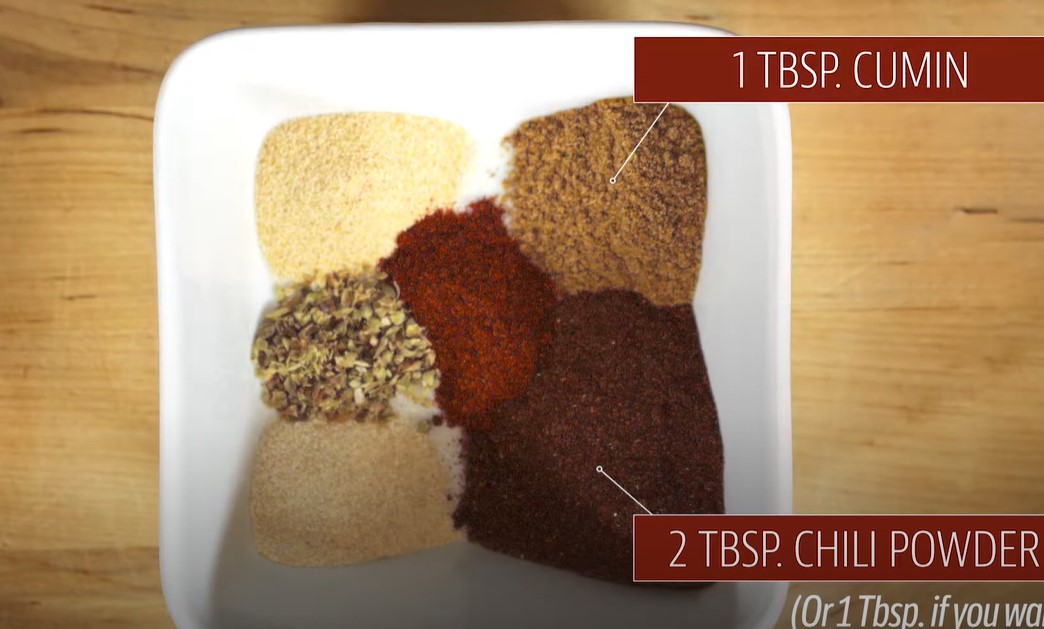Taco Seasoning Nutrition Facts
Setting foot into the flavorful world of Taco Seasoning nutrition facts, this blog post is about to spice up your knowledge on what goes into your favorite Mexican food staple. Brace yourself for a fascinating journey that scrutinizes the caloric content, sodium levels, and surprising dietary implications, revelations that could add a new layer of depth to your taco nights.
Casa Mamita taco seasoning nutrition facts are just one facet of the broad world of taco seasonings. Diverse and flavorful, these packets transform ordinary meat or veggies into a fiesta of flavors within minutes. If you’ve ever wondered about the nutrition details of these aromatic blends, join us as we dive into a comprehensive analysis of some of the market’s favorite taco seasonings.
Detailed Nutritional Analysis

When preparing a flavorful taco, many rely on their trusted seasoning packets. Beyond imparting taste, these packets also contribute to the overall nutritional content of the dish. Notably, El Paso taco seasoning and the ever-popular McCormick taco seasoning nutrition facts offer insights into calorie counts, sodium levels, and more.
For those particularly health-conscious, seeking options such as McCormick low Sodium Taco Seasoning nutrition facts or Old El Paso low Sodium Taco Seasoning nutrition can be beneficial. Lower sodium alternatives ensure delicious flavors without excessive salt.
| Brand | Calories per serving | Carbohydrates (g) | Sodium (mg) |
|---|---|---|---|
| Casa Mamita | 15 | 3 | 320 |
| El Paso | 20 | 4 | 380 |
| McCormick | 15 | 3 | 360 |
Preparation and Cooking
While the taco seasoning packet nutrition is valuable information, how you utilize the seasoning during cooking can influence the final dish’s flavor and nutrition. Following the Ortega Taco Seasoning Mix instructions, one typically needs to cook beef in a 10-inch skillet and stir in water and the seasoning mix, heating to boiling. Reducing heat and simmer uncovered, stirring often until thickening is crucial. Such preparation ensures the even distribution of flavors.
Notably, many taco seasonings, including the mild taco seasoning mix, often do not contain artificial flavors, showcasing their commitment to genuine tastes. Mixing, heating, and simmering also ensure that all ingredients meld beautifully, creating a rich, aromatic, deeply flavorful sauce.
In conclusion, taco seasoning isn’t just a packet of spices; it’s a symphony of flavors that elevate the humble taco to gastronomic delight. Being informed about the nutritional content ensures that while we indulge in these flavors, we also remain conscious of our health and dietary intake. As the culinary world continues to evolve, the taco, with its myriad flavors and combinations, remains a testament to simple ingredients creating extraordinary results. So, the next time you reach for that seasoning packet, remember the journey of flavors, nutrition, and culinary craftsmanship it represents.
Read also;
Frequently Asked Questions
Is taco seasoning high in sodium?
Depending on the specific brand or recipe, taco seasoning can be high in sodium. However, there are low-sodium and sodium-free alternatives available. Additionally, you can make your taco seasoning mix at home to control the sodium content.
Can I make my taco seasoning at home?
Yes, making your taco seasoning is simple and allows you to adjust the ingredients to your taste preferences and dietary needs. A basic recipe may include chili powder, cumin, paprika, onion powder, garlic powder, oregano, and salt, with optional additions like black pepper, red pepper flakes, or cayenne pepper for extra heat.
Is taco seasoning gluten-free?
Many taco seasoning mixes are gluten-free, but some may contain ingredients derived from wheat, such as wheat flour or modified food starch. Always check the label or contact the manufacturer if you have concerns about gluten content. You can also create a gluten-free taco seasoning mix using gluten-free ingredients.






